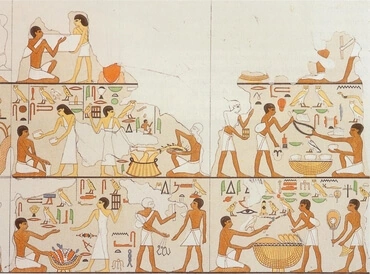1
DEH! ascoltate ciò che dice il Signore: Levati, litiga appo i monti, e odano i colli la tua voce.
2
Udite, o monti, e voi saldi fondamenti della terra, la lite del Signore; perciocchè il Signore ha una lite col suo popolo, e vuol contendere con Israele.
3
O popol mio, che t’ho io fatto? e in che t’ho io travagliato? testimonia pur contro a me.
4
Conciossiachè io t’abbia tratto fuor del paese di Egitto, e riscosso della casa di servitù; ed abbia mandati davanti a te Mosè, Aaronne, e Maria.
5
Deh! popol mio, ricordati qual consiglio prese Balac, re di Moab; e qual risposta gli diede Balaam, figliuolo di Beor; di ciò che ti avvenne da Sittim fino in Ghilgal; acciocchè tu riconosca le giustizie del Signore.
6
Con che verrò io davanti al Signore? con che m’inchinerò io all’Iddio altissimo? gli verrò io davanti con olocausti, con vitelli di un anno?
7
Il Signore avrà egli a grado le migliaia de’ montoni, le decine delle migliaia delle bestie delle valli grasse? darò il mio primogenito per lo mio misfatto? il frutto del mio ventre per lo peccato dell’anima mia?
8
O uomo, egli ti ha dichiarato ciò ch’è buono; e che richiede il Signore da te, se non che tu faccia ciò che è diritto, e ami benignità, e cammini in umiltà col tuo Dio?
9
La voce del Signore grida alla città e colui ch’è savio temerà il tuo Nome: Ascoltate la verga, e colui che l’ha fatta venire.
10
Non vi son eglino ancora nella casa dell’empio de’ tesori d’empietà, e l’efa scarso, che è cosa abbominevole?
11
Sarei io innocente, avendo bilance false, ed un sacchetto di pesi ingannevoli?
12
Perciocchè i ricchi di essa son ripieni di violenza, e i suoi abitanti ragionano falsità, e la lor lingua non è altro che frode nella lor bocca.
13
Perciò, io altresì ti renderò dolente, percotendoti, e desolandoti per li tuoi peccati.
14
Tu mangerai, e non sarai saziato; e il tuo abbassamento sarà dentro di te; tu darai di piglio, ma non salverai; e ciò che tu avrai salvato io lo darò alla spada.
15
Tu seminerai, e non mieterai; tu pesterai le ulive, e non ti ungerai dell’olio; e il mosto, e non berrai il vino.
16
Oltre a ciò, gli statuti di Omri, e tutte le opere della casa di Achab, sono state osservate; e voi siete camminati ne’ lor consigli; acciocchè io vi metta in desolazione, e gli abitanti di Gerusalemme in zufolo; e acciocchè voi portiate il vituperio del mio popolo.







